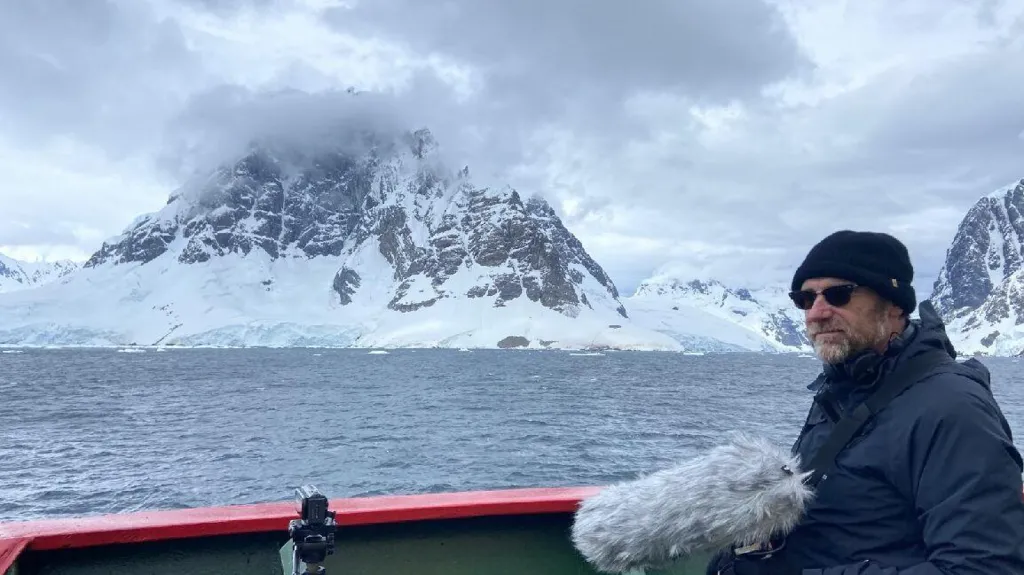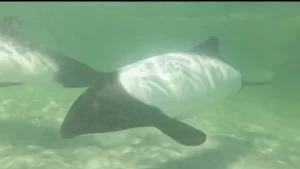From Edinburgh to Antarctica: A Composer’s Journey into Sound
3 min read
Michael Beggs has been making music since 2000 and spent several weeks away from home for the trip, to make music

Michael Beggs has been making music since 2000 and spent several weeks away from home for the trip, to make music
Scottish composer Michael Begg embarked on an extraordinary journey to Antarctica, a place known for its solitude but rich in sound. “Antarctica is often labeled the quietest continent, but it’s alive with noise,” he shares upon returning to Edinburgh.
The experience was anything but silent. During his nearly three-month stay aboard the Royal Navy’s ice patrol vessel, HMS Protector, he discovered a world filled with the constant roar of wind and the vibrant calls of wildlife. “When you’re on the ocean, you’re never far from whales. You can always hear them calling and spouting nearby. On shore, seals and penguins are constantly vocalizing.”
Begg’s trip inspired a new album and a documentary film. He recorded the sounds of glaciers cracking and observed a lively penguin colony that resembled “a holiday camp.” The majestic sights and sounds of Antarctica left him in awe. “The sense of wonder was almost overwhelming,” he reflects. “There was almost 24 hours of daylight, revealing the most extraordinary sights, colors, and sounds. I expected cold and ice, but I was amazed by the range of colors—bizarre lemon sherbet sunsets and unusual purple waters. Everything felt foreign, making it easy to let go of familiar surroundings.”
Michael is no stranger to blending music with nature and science. Since 2000, he has been a prolific sound artist, engaging in composer residencies with the Ocean ARTic Partnership and the European Marine Board. These experiences involved collaborating with scientists to create music from polar research. He refers to his approach as “finding music from the world,” employing computer programming and studio techniques to translate data into soundscapes.
His work led him to become a musician in residence with the Friends of the Scott Polar Research Institute in Cambridge. When the opportunity arose to travel with the Royal Navy, he eagerly accepted. Onboard, he found his hosts accommodating, though they were sometimes surprised by his adventurous requests. “I asked if the Marines could drop me off on an inhospitable island for a day. They agreed, but prepared me for the harsh conditions.”
The isolation and breathtaking scenery provided ample inspiration. Michael gathered enough footage for a documentary to accompany his album, titled Out of Whose Womb Comes The Ice. He hopes this body of work will convey the urgent changes in climate, capturing the fragility of a warming world where glaciers are retreating. “All I had to do was point the microphone at the ice as it cracked and faded,” he explains.

While Michael does not aim to deliver a heavy-handed climate message, he hopes to encourage personal reflection through his art. “I want people to find their own way into the experience,” he says. Yet, some encounters spoke for themselves.
One particularly striking moment occurred on Deception Island, a former research and whaling station shaped by volcanic activity. Despite the rugged terrain, Michael noted the unsettling beauty of the environment, a mix of wonder and apprehension. He recalls, “At this time of year, it should be filled with life, yet it felt empty and ghostly.”
Begg’s work will premiere at the Glad Cafe in Glasgow on September 27, as part of the Sonica festival, which celebrates innovative music and audiovisual art.
Among the highlights of his adventure was a memorable afternoon on Bertha’s Beach in the Falkland Islands, where he found himself immersed in a colony of Gentoo penguins. “I felt like a penguin for a day,” he laughs. “I walked among them, and they barely acknowledged my presence. Some approached, curious, while others seemed to have their own social dramas playing out—like lovers arguing and chicks swimming.”
With guidelines in place to keep a respectful distance from the wildlife, it was amusing that the penguins seemed oblivious to these rules. For Michael, the experience was not just about documenting sounds but about connecting with a vibrant ecosystem in its natural state.
Through his work, he aims to share the beauty and fragility of Antarctica, inviting others to listen and reflect on the changing planet.